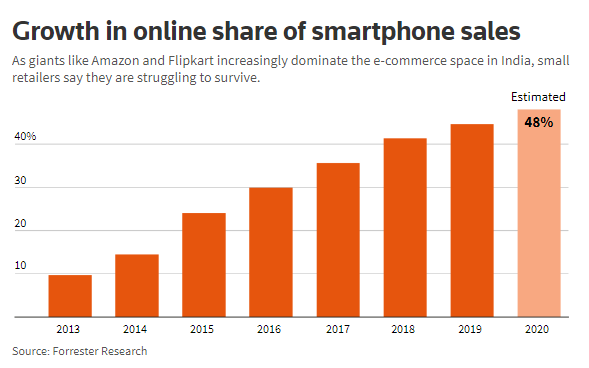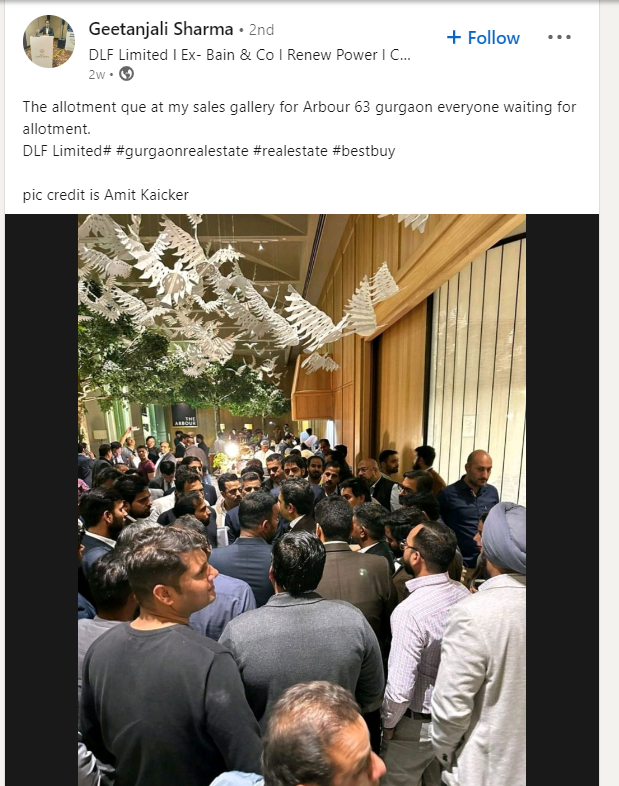Reuters Investigation: Amazon has for years given preferential treatment to a small group of sellers in India, publicly misrepresented its ties with the sellers and used them to circumvent tough foreign investment rules, company documents show reut.rs/2OCOT2W
Amazon says it runs a transparent online marketplace and treats all sellers equally in India. The internal Amazon documents contradict those claims. The documents also show that the company has exercised significant control over the inventory of some of the biggest sellers
“Test the Boundaries of what is allowed by law,” said one slide in a 2014 presentation, titled “Risk Analysis”, which was contained hundreds of internal Amazon documents that have been reported by @Reuters for the first time.
Amazon says Cloudtail is an independent seller. But Amazon has been deeply involved in expanding Cloudtail – often referred to as “SM,” or “Special Merchant,” in the documents. “...we helped SM quickly ramp up and gain scale,” a Feb. 23, 2015 document said.
About two months after Cloudtail’s launch in August 2014, Jeff Bezos met India PM Narendra Modi in New Delhi. A draft document containing talking points was prepared for the Oct. 3 meeting. It makes no mention of Cloudtail or its plans.
The document also included a brief appraisal of the Indian leader. “PM Modi is not an intellectual or an academic but believes that strong administration and governance is the key to running a successful government,” it said. Read more: reut.rs/2OCOT2W 

In March 2016, Cloudtail’s share of sales on Amazon.in was around 47%, an internal document shows. The documents show that Amazon was effectively treating Cloudtail’s inventory as its own
As India announced new investment rules in 2016, Amazon moved the procurement of some phone brands Cloudtail was offering to Amazon Wholesale, which then supplied these products to “certain” sellers, who sold them on Amazon.in. reut.rs/2OCOT2W
Amazon has repeatedly said it has no role in pricing goods sold online in India and that prices are decided by sellers. Following the 2016 rule change, however, Amazon lowered the fees it charged some big sellers on its platform to enable them to offer more competitive prices.
Online smartphone sales have boomed. In 2018, Amazon's Amit Agarwal said in an internal email: “We had our biggest day ever for Smartphones, with estimated 3 out of every 4 smartphones sold in the entire country (online or offline) purchased on Amazon.in" 

The company documents also showed that in early 2019, some 35 of Amazon’s more than 400,000 sellers in India at the time accounted for around two-thirds of its online sales. Indian traders have long alleged that Amazon’s platform largely benefits a tiny number of big sellers
Indian retailer group calls for ban on Amazon in country after Reuters report. “The shocking revelations” are “sufficient enough to immediately ban operations of Amazon in India,” the group said. reut.rs/3dnlMLi
India's Enforcement Directorate will examine findings of the Reuters story - agency source. India PM Modi’s party spokesman says findings serious. Amazon in a memo says story unsubstantiated, incomplete, incorrect…"such instances can be distracting" reut.rs/3uaiWiU
As Amazon's Jay Carney was preparing to meet an Indian official in 2019, he was cautioned not to divulge that some 33 Amazon sellers accounted for about a third of the value of all goods sold on Amazon.in. Details in @Reuters investigation: reut.rs/2OCOT2W 



• • •
Missing some Tweet in this thread? You can try to
force a refresh








